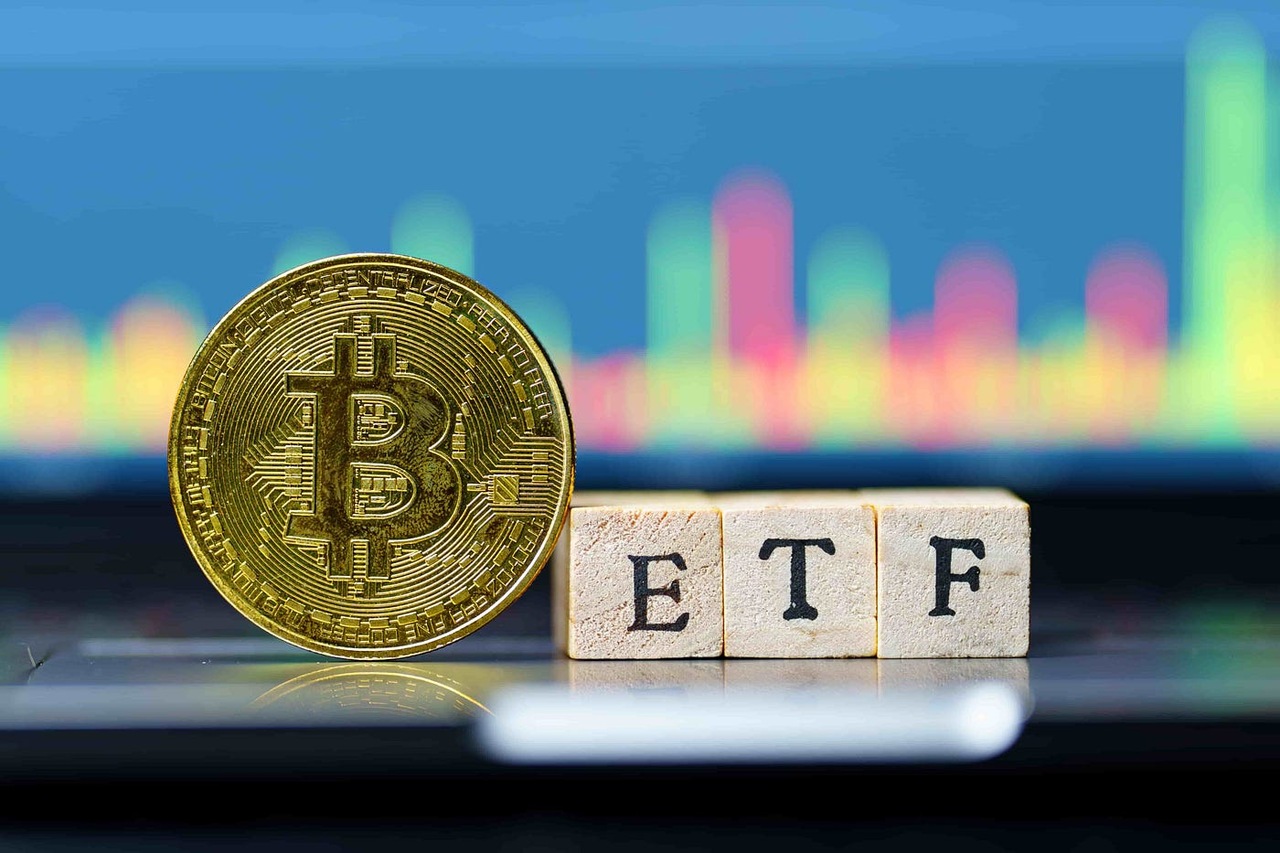

U.S. Bitcoin ETFs Surpass Satoshi’s Holdings: What Now?
The cryptocurrency landscape has been undergoing rapid transformation, and the recent surge in U.S. Bitcoin exchange-traded funds (ETFs) marks a significant milestone in this evolving market. In a little over a year since their introduction, these ETFs have collectively surpassed the Bitcoin holdings attributed to Satoshi Nakamoto, the mysterious creator of Bitcoin. In this article, we’ll explore what this milestone means, examine the key players driving the rise of Bitcoin ETFs, and look at the potential future of Bitcoin as an investment asset.
The Rise of U.S. Bitcoin ETFs
Historical Context
Bitcoin was created in 2009 by the pseudonymous Satoshi Nakamoto, and over the years, Nakamoto’s estimated stash of approximately 1.1 million BTC has become one of the most talked-about aspects of the Bitcoin narrative. This stash remains untouched, a reminder of the early days of Bitcoin and its original vision. Fast forward to today, and Bitcoin has evolved from an experimental digital currency into a globally recognized asset.
The introduction of Bitcoin ETFs in the U.S. has provided a regulated avenue for institutional and retail investors to gain exposure to Bitcoin without actually owning the cryptocurrency itself. These ETFs are designed to track the price of Bitcoin, offering an accessible way for investors to participate in the Bitcoin market through traditional financial channels. The result has been a dramatic surge in interest from investors who may have been hesitant to hold Bitcoin directly.
Current Holdings
As of December 2024, U.S. spot Bitcoin ETFs have surpassed Nakamoto’s Bitcoin holdings. These funds collectively hold around 1,104,534 BTC, marking a major shift in Bitcoin ownership dynamics. This milestone underscores the growing influence of institutional investors and the broader acceptance of Bitcoin as an asset class.
Here’s a breakdown of the largest Bitcoin ETF holders:
- BlackRock (IBIT): 521,375 BTC
- Grayscale (GBTC): 251,330 BTC
- Fidelity (FBTC): 199,246 BTC
- Ark/21Shares ARKB: 48,144 BTC
- Bitwise BITB: 41,062 BTC
These numbers reveal a stunning concentration of Bitcoin in the hands of institutional funds. Together, these U.S.-based Bitcoin ETFs now hold more Bitcoin than the total amount attributed to Nakamoto, which has remained dormant for over a decade.
Key Players in the U.S. Bitcoin ETF Market
Several key players are leading the charge in the Bitcoin ETF market. These firms are not only holding large amounts of Bitcoin but also shaping the future of Bitcoin investment.
BlackRock
BlackRock’s Bitcoin ETF, the iShares Bitcoin Trust (IBIT), is by far the largest player in the market. With over 521,375 BTC under management, BlackRock has firmly established itself as a dominant force in the cryptocurrency investment space. The company’s vast influence and deep pockets allow it to attract significant institutional capital, which has helped drive the success of Bitcoin ETFs.
Grayscale
Grayscale has long been a major player in the crypto investment world. The Grayscale Bitcoin Trust (GBTC) holds over 251,330 BTC, making it one of the largest Bitcoin holders among ETF providers. Grayscale’s presence in the market is a testament to the growing institutional acceptance of Bitcoin as a legitimate asset.
Fidelity
Fidelity, known for its broad range of financial services, has also made a strong move into the Bitcoin ETF space with its FBTC fund. Holding 199,246 BTC, Fidelity has solidified its position as a key player in this market, offering investors a familiar and trusted platform for Bitcoin exposure.
The Role of These Funds
These funds have seen a rapid increase in Bitcoin holdings, benefiting from large-scale capital inflows. On average, Bitcoin ETFs are receiving around 8,636 BTC per day, highlighting the growing confidence from investors in these regulated investment products. The sheer volume of Bitcoin these funds are amassing also reflects a broader shift in how Bitcoin is viewed: from a speculative asset to a mainstream investment.
Implications of Surpassing Nakamoto’s Holdings
Market Dynamics
The fact that Bitcoin ETFs have surpassed Nakamoto’s holdings represents a critical moment in the maturation of the cryptocurrency market. In many ways, this milestone signals that Bitcoin is no longer solely the domain of early adopters and retail investors. Instead, institutional players have entered the market in a significant way, and their participation is likely to influence the future of Bitcoin in profound ways.
This shift is important because it indicates that Bitcoin is increasingly being treated as a legitimate asset class by the financial world. Institutional investment tends to bring greater stability to markets, and as more capital flows into Bitcoin ETFs, we could see less volatility in Bitcoin’s price movements.
Price Volatility and Supply Dynamics
As more Bitcoin is accumulated by these large institutional funds, the available supply of Bitcoin on exchanges decreases. This reduced liquidity can lead to upward pressure on Bitcoin prices. With fewer coins available for purchase, the competition for ownership could drive prices higher, especially as Bitcoin approaches psychological price levels, such as $100,000.
The influx of institutional capital, combined with limited supply, could lead to a more bullish outlook for Bitcoin in the coming years. However, this could also exacerbate Bitcoin’s price volatility, as large investors can have a significant impact on price movements.
Institutional vs. Retail Investors
The rise of Bitcoin ETFs may signal a shift in the balance between institutional and retail investors in the Bitcoin market. For years, retail investors have been the driving force behind Bitcoin’s price growth. However, as institutional investors increase their holdings, they could change the way the market operates. Retail investors may find themselves in a more competitive environment as institutional funds corner a larger share of Bitcoin’s total supply.
This shift has significant implications for Bitcoin’s future. On one hand, institutional investment could provide stability and legitimacy to the market, increasing overall trust in Bitcoin. On the other hand, retail investors could face increased difficulty in securing their desired amount of Bitcoin, potentially leading to frustration among those who have traditionally driven Bitcoin’s growth.
The Future Outlook for U.S. Bitcoin ETFs
Continued Growth
The future for U.S. Bitcoin ETFs looks promising. These funds have experienced impressive growth, attracting billions of dollars in investments. In November 2024 alone, Bitcoin ETFs saw an inflow of around $6.2 billion, a figure that suggests continued interest from both institutional and retail investors. With Bitcoin ETFs now holding more than 1.1 million BTC, the growth trend shows no signs of slowing down.
As more institutional investors look for exposure to Bitcoin, and as more retail investors turn to these funds for easier access to the market, the trajectory for Bitcoin ETFs will likely remain upward. This could help Bitcoin become a more widely accepted investment asset, further embedding it in the financial mainstream.
Regulatory Landscape
The future of Bitcoin ETFs is highly dependent on the regulatory landscape. Governments around the world are still grappling with how to regulate cryptocurrencies, and clarity on regulatory frameworks could have a significant impact on Bitcoin ETFs’ growth. If regulations are clarified and made more favorable, we could see a further surge in investor confidence, which would likely lead to more capital flowing into Bitcoin ETFs.
However, regulatory hurdles remain. Governments are cautious about how they handle the rapid rise of cryptocurrency markets, and some concerns remain about the potential risks associated with Bitcoin’s volatility. If regulatory scrutiny increases, Bitcoin ETFs could face challenges that may affect their growth.
Potential Challenges
Despite their impressive growth, Bitcoin ETFs face several challenges moving forward. One of the biggest risks is the inherent volatility of Bitcoin. While Bitcoin’s price has risen dramatically in recent years, it remains susceptible to significant price swings. This could lead to investor hesitance or reduced inflows if the market experiences a downturn.
Additionally, as competition among Bitcoin ETF providers intensifies, funds will need to continue innovating and attracting new investors to maintain their market share. The rise of Bitcoin ETFs could lead to new entrants into the market, and competition could push firms to offer even more attractive features and benefits for investors.
Conclusion
The surpassing of Satoshi Nakamoto’s Bitcoin holdings by U.S. Bitcoin ETFs marks a pivotal moment in the history of cryptocurrency. It highlights the growing institutional acceptance of Bitcoin and the shift towards regulated investment products. As Bitcoin ETFs continue to evolve, they will likely play an increasingly central role in shaping the future of Bitcoin as an asset class.
For investors, this development underscores the importance of staying informed about both the ETF market and the broader cryptocurrency landscape. With the potential for continued growth and the influence of institutional capital, the future of Bitcoin ETFs looks promising—but it’s clear that the market will face challenges along the way. Whether you’re an institutional investor or a retail participant, monitoring these trends will be crucial as the Bitcoin ecosystem continues to unfold.
Source:
- US Bitcoin ETFs surpass Satoshi’s slumbering stack
- US spot Bitcoin ETFs surpass Satoshi Nakamoto, becoming world’s largest Bitcoin holder
- Game-Changer: US Bitcoin ETFs Outpace Satoshi Nakamoto’s Legendary 1.1M BTC Stash






